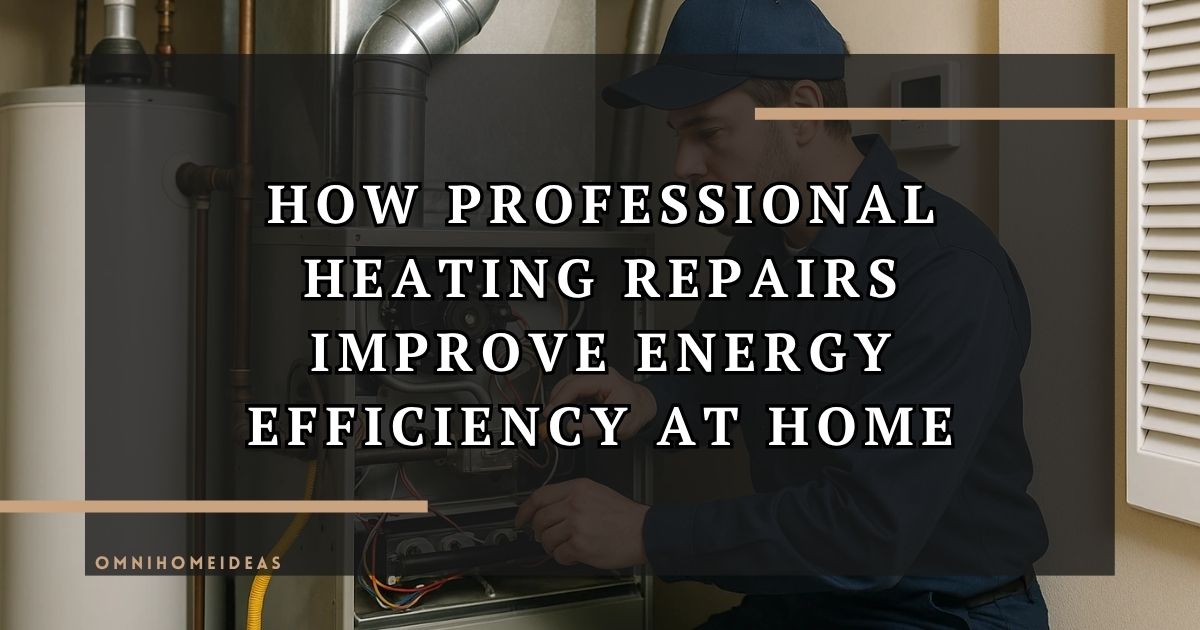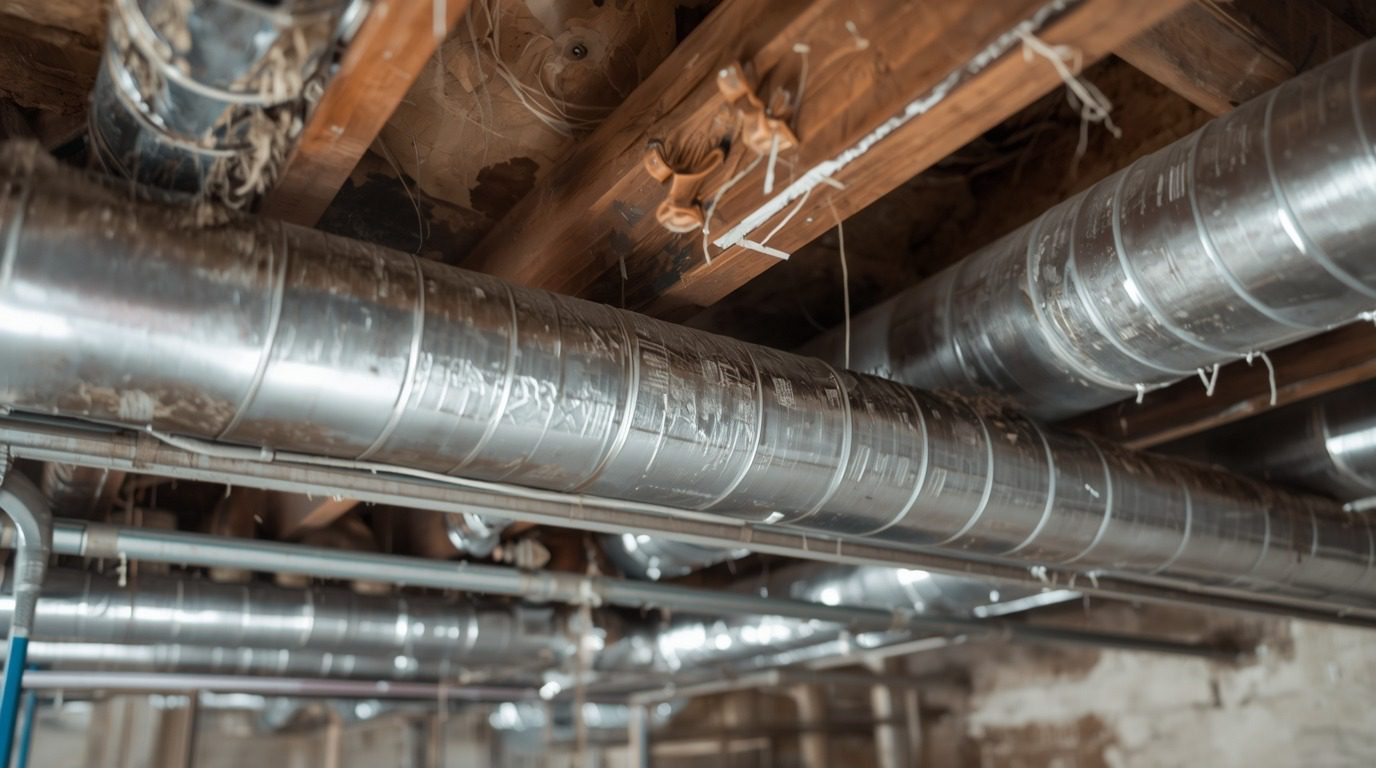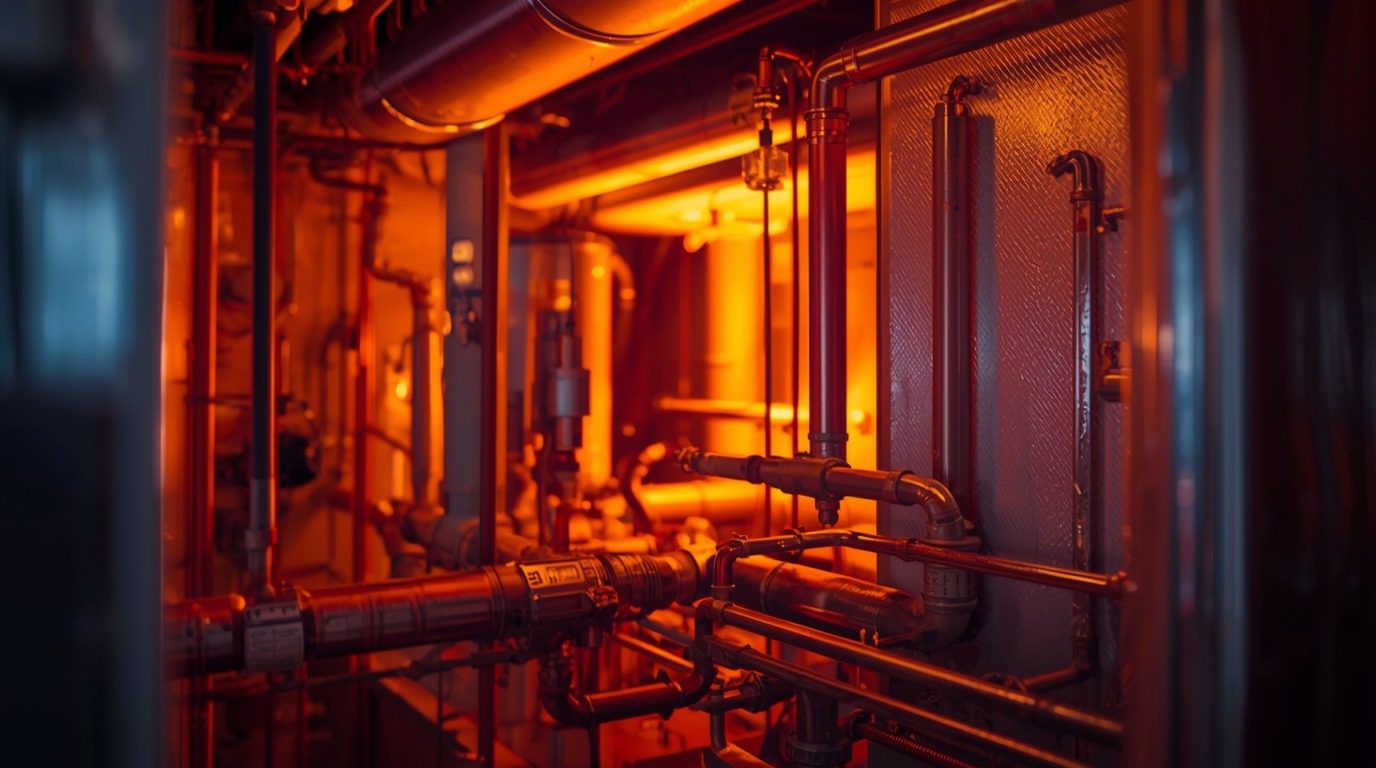Efficient heating is about more than comfort—it directly impacts your energy bills and environmental footprint. Over time, even quality heating systems lose efficiency due to wear, dirt buildup, or neglected maintenance. Professional heating repairs restore proper airflow, combustion, and controls, helping your system work smarter instead of harder. With regular expert service, homeowners can enjoy consistent warmth, lower energy use, and fewer costly breakdowns throughout the year.

Understanding the Link Between Heating Systems and Energy Use
Your heating system is one of the largest energy consumers in your home. When components like burners, blowers, or thermostats drift out of calibration, they require more energy to produce the same level of comfort. Dirty filters, duct leaks, and malfunctioning sensors force systems to run longer and burn more fuel, wasting both energy and money. Restoring each part to its intended performance level is key to maximizing efficiency and extending equipment life.
A properly maintained system reaches the desired temperature faster and maintains it with less effort. For example, after a professional Heating Repairs, homeowners often notice more stable indoor temperatures and lower utility bills. Professionals tune combustion, check airflow, and verify thermostatic control so your system delivers maximum output with minimal waste—an essential step toward long-term energy efficiency.
Common Heating Problems That Waste Energy

Many hidden issues in heating systems cause unnecessary energy loss. Identifying these problems early helps prevent bigger repairs and keeps your system performing efficiently.
- Dirty or clogged filters: Restrict airflow and make blowers work harder, increasing power use.
- Leaky ducts: Let heated air escape into attics or crawlspaces, wasting up to 30% of energy output.
- Improper burner adjustment: Causes incomplete combustion and reduced heating efficiency.
- Faulty thermostats: Lead to constant cycling or overheating, wasting electricity and fuel.
- Low refrigerant levels (in heat pumps): Force longer runtimes and reduced heating capacity.
- Worn motors or bearings: Draw more power and move less air, cutting system performance.
The Role of Professional Heating Repairs in Optimizing Performance
Professional repairs begin with precise diagnostics. Technicians measure airflow, gas pressure, combustion efficiency, and electrical draw to identify where performance loss occurs. This targeted testing eliminates guesswork and ensures every fix directly addresses the problem. By using specialized tools like manometers and combustion analyzers, technicians can bring your system back to peak operating condition.
Repairs typically include cleaning burners, tightening electrical connections, sealing ducts, and adjusting control settings. Each small correction improves how heat is produced and distributed, meaning less fuel is needed to warm your home. Professionals also calibrate the thermostat and blower speeds so your system operates smoothly and evenly.
Once optimized, your heating system runs more quietly, maintains steadier temperatures, and experiences less mechanical strain. These improvements not only save energy but also extend the lifespan of critical components, reducing long-term maintenance costs.
Key Benefits of Timely Heating Repairs for Homeowners
Addressing heating issues promptly prevents minor inefficiencies from escalating into major expenses. A timely repair can reduce utility bills by up to 20%, prevent unexpected breakdowns, and ensure safer operation. Clean combustion and balanced airflow also protect indoor air quality and minimize carbon monoxide risks in gas systems.
In addition, properly repaired heating systems deliver better comfort. Even temperatures, quiet operation, and reliable performance create a more pleasant living environment. Regular maintenance combined with prompt repairs forms the foundation of both comfort and cost control during cold months.
How Heating Technicians Identify and Fix Energy Leaks
Skilled technicians locate “energy leaks” by checking airflow, insulation, and combustion performance. Tools like thermal cameras and pressure gauges help pinpoint where warm air escapes or where the system struggles to transfer heat effectively. Once these areas are found, sealing ducts, cleaning coils, and recalibrating controls can significantly reduce energy waste.
Technicians may also adjust gas pressure, replace faulty sensors, or balance ducts to improve overall system flow. Each of these corrections ensures that more of the energy consumed by the system is converted into usable heat, not lost through inefficiency. Over time, these small optimizations lead to noticeable improvements in comfort and energy savings.
Comparing DIY vs. Professional Heating Repairs
While some maintenance tasks like replacing filters or checking thermostat batteries can be done by homeowners, deeper repairs should be handled by professionals. Without proper tools and knowledge, DIY fixes often miss root causes or create safety issues. Certified technicians provide accurate diagnostics, ensure compliance with safety codes, and offer warranties for their work—making professional service the safer, more efficient choice.
| Aspect | DIY Repairs | Professional Repairs |
| Accuracy | Based on observation; may miss hidden faults. | Uses diagnostic tools to pinpoint real issues. |
| Safety | Higher risk of gas or electrical mistakes. | Complies with safety standards and codes. |
| Cost | Cheaper initially but may lead to repeat issues. | Higher upfront, but saves money long term. |
| Warranty | Often voided if work is not certified. | Includes parts and labor warranties. |
| Efficiency | Minor improvement at best. | Restores full system performance and energy savings. |
Preventive Maintenance Tips to Maintain Efficiency Year-Round

Consistent maintenance keeps your heating system performing efficiently throughout the year. Replace or clean filters every one to three months to maintain airflow and reduce strain on motors. Keep vents and registers free from obstructions so heat can circulate properly in every room.
Schedule annual professional inspections before the heating season begins. During these visits, technicians clean components, check gas pressure, inspect electrical connections, and ensure all safety controls work properly. This proactive approach helps prevent sudden breakdowns and keeps efficiency high when you need heat the most.
Homeowners should also watch for warning signs like strange noises, uneven temperatures, or rising utility bills—these often signal that maintenance or minor repairs are needed. Addressing them quickly avoids higher costs later and prevents overworking the system.
For long-term efficiency, combine professional maintenance with smart home controls. Programmable thermostats and zoning systems reduce energy use by heating only occupied spaces. Together, these habits and technologies can keep your home comfortable while cutting heating expenses significantly.
Final Thoughts: Investing in Professional Heating Repairs Pays Off
Investing in professional heating repairs ensures that your system operates safely, efficiently, and reliably. Expert technicians use data-driven diagnostics to eliminate wasted energy, stabilize performance, and extend equipment life. Over time, these benefits add up—lower bills, fewer breakdowns, and a more comfortable living environment. In short, heating repairs performed by professionals aren’t an expense—they’re an investment in comfort, efficiency, and peace of mind.

